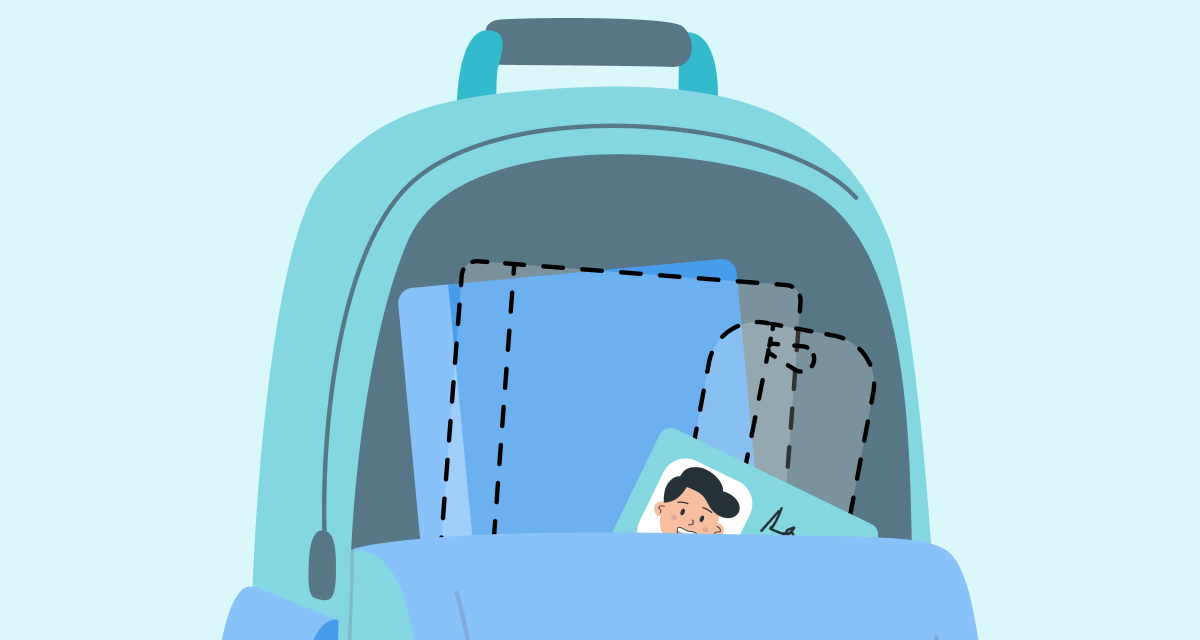Son Keeps Losing His Stuff? Here’s How to Help

Every month, William’s mom buys new school supplies, and every few months, another backpack or jacket. Her son keeps losing them at school or leaving them on the bus.
Sound familiar? Let’s look at why this happens and how to help your child deal with forgetfulness.
Why Kids Lose Their Things
At first glance, it might seem like your child is just careless or irresponsible. But in reality, this often has to do with how their brain is developing and the challenges kids between ages 7 and 12 naturally face.
The Brain Is Still Learning Control
The ability to keep track of belongings depends on specific brain functions — the ones that help us plan, check that everything’s packed, and finish what we start. Between ages 7 and 12, these executive functions are still forming. That’s why losing things isn’t a sign of laziness or defiance — it’s simply part of growing up.
Individual Differences Show Up
Some children, especially those with ADHD or autism spectrum traits, may have stronger difficulties with organization and attention. But even without a diagnosis, many kids get lost in their thoughts, focusing only on what feels important to them, not to adults. Others may just have personality traits that make staying organized harder. In short, this forgetful stage is a normal part of development.
What Parents Can Do
We can help kids become more organized — one small step at a time. Visual reminders and cues can help.
- Create simple, visible systems together. Label shelves like “Backpack lives here” or “Hat corner.” Use colorful stickers or pictures to make them easier to remember.
- Simplify their environment. Too many things make it hard to keep track. Keep only what’s essential: one pair of gloves instead of five, one sturdy pencil case instead of three. Transparent folders and cases help your child see what’s missing at a glance.
- Lists and reminders. A small magnetic board with a checklist works great, or a bead bracelet where each bead stands for one task — like “homework, lunchbox, jacket.” Checking them off feels satisfying and builds habits without pressure.
- Daily routines. Spend 10–15 minutes each evening packing for the next day. It reduces morning chaos and makes it easier to remember everything.
- Search time. If something goes missing, don’t scold — help brainstorm. Ask, “Where do you think you might’ve left it? Should we check the locker or the classroom?” This teaches problem-solving instead of panic.
- Respect for belongings. Try not to immediately replace lost items. Search together first. It helps your child understand the value of their things.
What Can Make Things Worse
Sometimes, in trying to “teach responsibility,” parents go too far by scolding, comparing, or correcting their child in front of others. But these reactions usually backfire. They increase anxiety, lower self-esteem, and make it even harder for the child to stay focused and organized.
⠀
It’s important to remember: losing things is a normal part of development for boys between 7 and 12, not a flaw in character. Patience, empathy, and gentle structure help much more than criticism.
References
- Prefrontal cortex intrinsic functional connectivity and executive function in early childhood and early adulthood, Developmental Cognitive Neuroscience — Volume 74, 2025
- Executive function in children with neurodevelopmental conditions: a systematic review and meta-analysis, Nature Human Behaviour, 2024
- The Development of Executive Function: Mechanisms of Change and Functional Pressures, Journal of Cognition and Development — Volume 24, 2023
- Working memory and short-term memory deficits in ADHD: A bifactor modeling approach, Frontiers in Psychiatry, 2020
- Prefrontal cortex and executive function in young children: a review of NIRS studies, Frontiers in Human Neuroscience, 2013
Проверьте электронный ящик



















